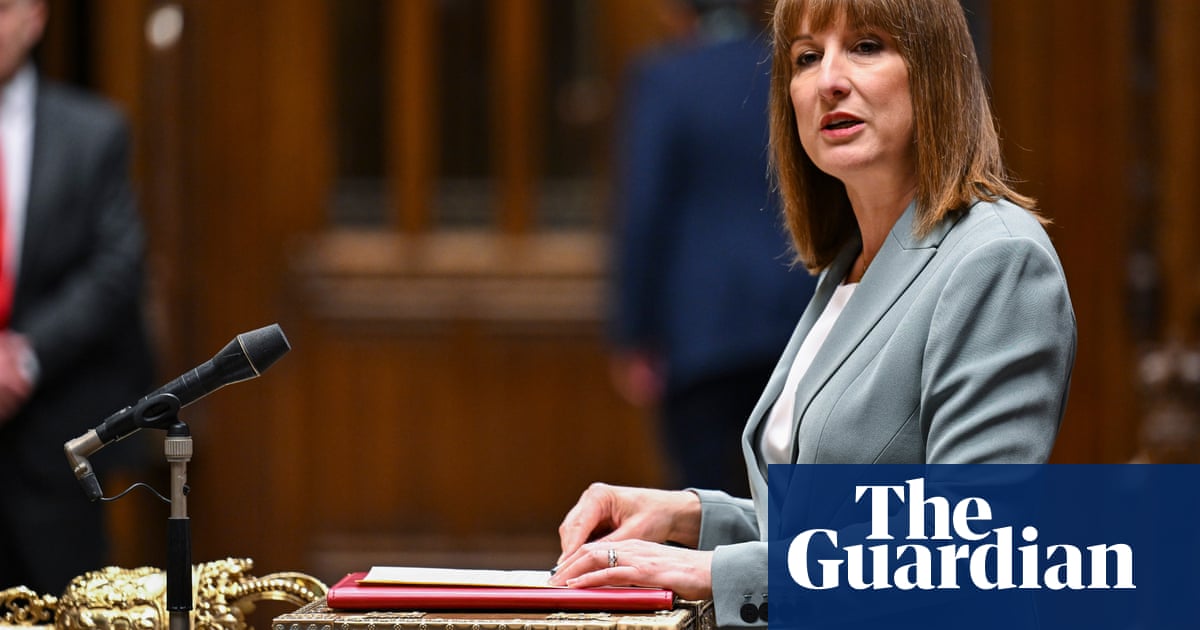Blackpool, Cardiff, Teesside, Kirkcaldy: Rachel Reeves’s spending review speech was peppered with more regional shout-outs than a drive-time radio show.
Changing her fiscal rules in the autumn freed up £113bn for extra capital investment over five years by allowing the Treasury to net off financial assets against its debts.
Wednesday’s statement therefore includedsignificant investment in what Reeves called Labour choices: in particular, rekindling regional economies outside London and the south-east.
Not coincidentally, these include areas that could prove vulnerable to Reform UK. Her plans would “make working people in all parts of our country better off”, she claimed.
She hailed defence investment as a way of creating jobs and growth “in Aldermaston and Lincoln, in Portsmouth and Filton, on the Clyde and in Rosyth”.
There is a rationale behind this capital-heavy approach. Economists broadly agree that a key cause of the UK’s catastrophically weak productivity – the specialist subject of Reeves’s chief economic adviser, John Van Reenen - is low investment.
Labour wants to use the resourcesfreed up by the fiscal rule changeto start tackling this longstanding bugbear – and in the process boost confidence and spark economic growth.
To that end, Reeves announced a string of infrastructure projects, some of which were foreshadowed in her speech last week: a new generation of nuclear power plants and a two-thirds increase in the capacity of the British Business Bank to £25.6bn to back expanding companies.
More detail on how the government hopes to use the lever of public investment to attract more private sector funding and create jobs will emerge in next week’s 10-year infrastructure strategy, and the long-awaited industrial strategy now expected the week after.
Reeves’s speech also included the reappearance of her “securonomics” catchphrase. Absent from her£40bn tax-raising budget last autumn, this is the idea of rejecting unfettered globalisation in favour of ensuring products that are key to the UK’s security are made here: “Things built to last, built in Britain.”
The chancellor has also reviewed the “green book”that determines how the Treasury judges spending projects, and which has long been blamed for channelling government investment towards the capital and surrounds.
There was much less emphasis from Reeves, however, on the hard-fought allocation of day-to-day budgets for departments.
She made clear Labour’s key priority was to fix the NHS, which will receive a 2.7% a year real-terms increase in its budget over the three years covered by the spending review (2.8% once the big uplift it was given in the current year is taken into account).
Outside the health service and defence, several other departments will have to tighten their belts in the years ahead as the Treasury demands efficiency savings.
Sign up toFirst Edition
Our morning email breaks down the key stories of the day, telling you what’s happening and why it matters
after newsletter promotion
Day-to-day education funding is to increase by an average of just 1.5% a year in real terms over the five years from 2023-24, though per-pupil spending will be flattered by the fact that rolls are falling.
Yvette Cooper’s Home Office has been told to eliminate the use of hotels to house asylum seekers by the end of the parliament. Her budget is to decline in real terms as a result, by 2.2% a year over the five-year period. Lisa Nandy’s Department for Culture, Media and Sport will have to swallow a 0.2% a year cut.
Managing this balance between more generous investment spending and tougher constraints on the day-to-day will shape Labour’s remaining years in power.
Reeves gave a nod to MPs and thinktankers who have warned that long-term capital projects, however important, won’t help their constituents any time soon.
In the shorter term, she promised “funding for parks, youth facilities and libraries, supporting councils fight back against fly-tipping and graffiti”. (Here, Blackpool, Stoke, Swindon and Newcastle all got a namecheck.)
But given the long-term nature of much of what she is promising, pressure will start building almost immediately, from within the Labour party and beyond, to open the spending taps further – even if that means tax rises to come.
